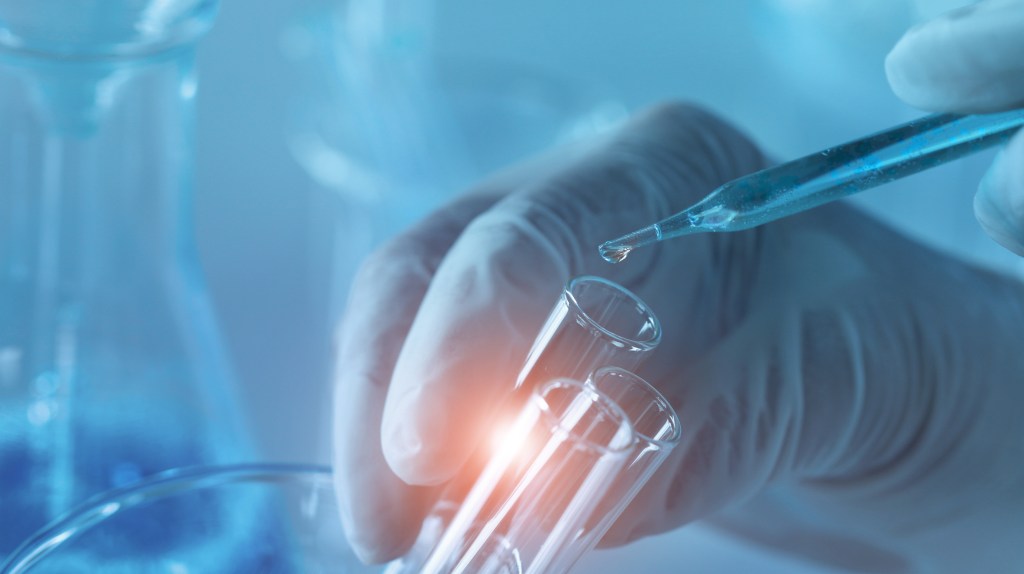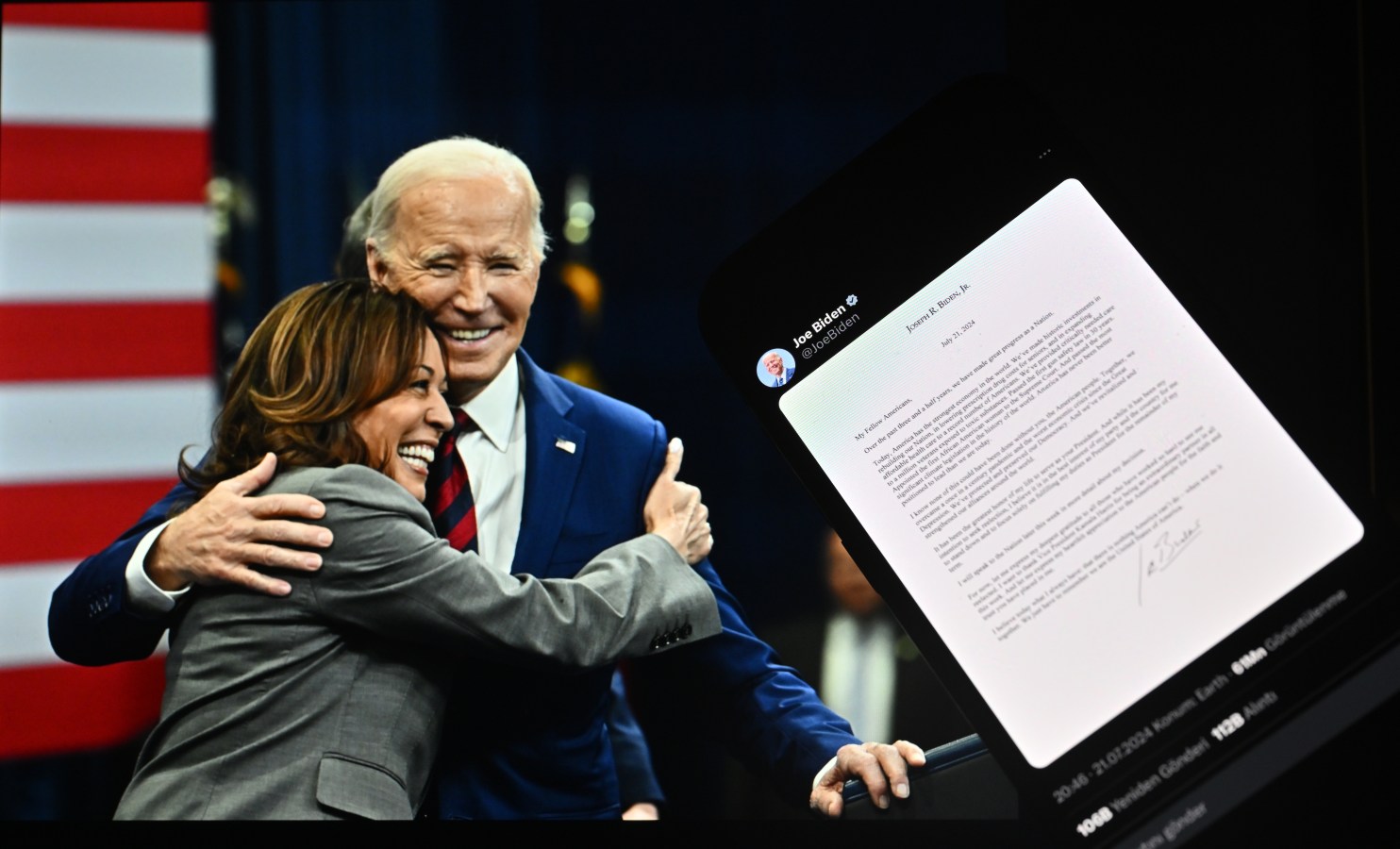Opinion: In the fast-paced world of leadership, one thing is certain: great leaders are always looking for ways to improve, innovate, and stay ahead of the curve. They understand that leadership is not just about managing people and making decisions—it’s about continuous self-improvement and adaptation. With the benefit of hindsight, many of us wish we had started this journey of self-discovery earlier, and for me, that journey includes a surprising tool: DNA testing.

Imagine a world where DNA testing holds the key to unlocking your full potential as a leader. Sounds like science fiction, doesn’t it?
Well, it’s not as far-fetched as it may seem.
The burnout wake-up call
Personally, the wake-up call came in the form of burnout—an “occupational phenomenon,” as officially recognised by the World Health Organisation a few years ago.
It’s a wake-up call that often comes after years of pushing oneself to the limit, thinking that working 120-hour weeks is the norm – our mindsets so powerful that we forget we are human.
In this era of biohacking and wellness, self-awareness has taken on a new dimension. Biohacking has become not only a wellness necessity but also a fascination, as we strive to optimise our performance – in all aspects of life.
From fasting to specialised diets, I’ve explored every avenue to enhance well-being, longevity, and energy levels. I’ve even invested in high-tech gadgets like the Oura ring to understand my sleep and recovery patterns better.
And it seems I’m not alone in this pursuit. According to recent research, the corporate wellness market in Australia and New Zealand was valued at a staggering USD 1.4 billion in 2022 and is expected to continue growing.
The rising awareness of employee health and well-being, coupled with factors like increased health awareness and rising absenteeism, is driving this growth.
The gene test revolution
So, back to that gene test.
It’s an incredibly powerful tool that’s easily accessible to order online.
As part of the Inform Me HealthSpan Program, I had the benefit of delving into a diverse array of 23 gene panels including aging, cognitive function, immune response, detoxification ability, methylation, weight management, female/male health, sports performance, and many more.
As a limited offering, this program also includes access to the myFatGene report and the comprehensive Skin Health panel.
A quick mouth swab and a trip to a physical mailbox are all it takes to kickstart your journey to self-discovery.
Once you’ve sent off your sample, you complete a comprehensive diet and lifestyle questionnaire online and then comes the game-changer—a personalised debrief and consultation about your individual results which you can access via an interactive report.
Currently, numerous gene tests exist in the market; however, this particular test stands out.
Unlike others that predominantly identify gene mutations and disease predispositions presented blandly in a static PDF report, this test centres on longevity, and healthspan and adopts a holistic perspective that looks at the effects of multiple gene variants and the environmental conditions they interact with.
It employs genomic testing, including gene copy numbers and the dynamic nature of mitochondrial copy numbers, which vary according to age and health status.
Perhaps the most intriguing part, however, is that your test is interpreted by their world-class proprietary AI-driven software drawing on evidence from the top leading scientific databases in real-time meaning it is automatically updated on a daily basis as new research emerges.
After receiving the test report, a notable feature was the ability to interactively visualise the results of interventions for each health category.
For instance, faced with a genetically low-functioning vitamin D receptor and its ramifications on osteoporosis, upon selecting “increase vitamin D supplementation”, the risk associated with osteoporosis visibly adjusted in the report.
This offers a compelling visualisation of the beneficial impacts of tailored choices based on one’s genotype.
The test’s recommendations span nutrition, lifestyle, exercise, supplementation, and monitoring, and are derived from over 60 million peer-reviewed papers, ensuring an evidence-based approach.
The company I used for testing is mygene.com.au, founded by Paloma Hatami, coincidentally a former lawyer, who has been through her own series of wake-up calls.
She says, “My journey into this field was prompted by a life-altering event when I faced a brain tumour diagnosis at the young age of 37. Three years ago, I confronted its resurgence, which led me on a transformative path. The treatments that saved my life, while invaluable, took a toll on my overall health, causing a rapid acceleration of the aging process. This experience not only motivated me to seek ways to rejuvenate myself but also to extend that opportunity to others in their own journeys to reverse the effects of such life-altering treatments.”
The insights: A game changer for leaders
In my one-hour Zoom consultation, I uncovered actionable and meaningful insights based on measurable metrics. Here’s a glimpse of what I learned:
- Diet: My genetic profile revealed that a predominantly plant-based diet suits me best, and amongst other findings, that my body metabolises carbs better than fats.
- Stress: While my body handles oxidative stress well, it’s also more sensitive to it. This was especially validating to learn, as it’s taken me years (and probably a lot of stress!) to master managing my stress more effectively.
- Sleep: I need more sleep than the average person, and my genes confirmed this. Armed with this knowledge together with additional data from my Oura ring, I’ve adjusted my routines accordingly.
- Memory: Luckily, I’m not genetically predisposed to cognitive decline, but I do need to rely on lists to support my prospective memory
- Cognitive aspects: I was pleased to see my genetic profile for social functioning, being an individual’s ability to interact and communicate with others in a way that is appropriate and adaptive; empathy and learning results were consistent with a modern leadership profile. Interestingly, I am genetically incompatible with shift work tolerance (and my early lawyering days certainly confirmed that!).
In essence, this gene and health-span test gave me access to insights that I had been chasing for years, often at significant cost and with mixed results. While the advent of corporate wellness programs is commendable, they often offer generic cursory solutions.
Our DNA is as unique as our fingerprints, and true wellness requires personalised advice.
Great leaders have always understood the importance of self-awareness.
They know that understanding themselves deeply is the key to unlocking their full potential. And now, with advances in technology and companies like mygene.com.au, leaders can take it a step further by understanding their genotype to fast-track their journey to peak performance.
It’s efficient and easily actionable biohacking.
In a world where leadership is evolving constantly, staying ahead means embracing every tool at your disposal.
So, is DNA testing part of the workplace of the future? It just might be the missing piece of the puzzle for those who dare to explore the untapped potential within their own DNA.
After all, great leaders are always looking for ways to lead better, and that journey starts with a swab of saliva.
Look back on the week that was with hand-picked articles from Australia and around the world. Sign up to the Forbes Australia newsletter here.
Anna believes that legal innovation is invigorating, change is energising and efficiency will never go out of fashion. Starting out at a major Australian law firm, she has spent the majority of her legal career in-house working in the banking, automotive and cosmetics industries, before starting her own multi-dimensional consultancy, Anna Lozynski Advisory.


